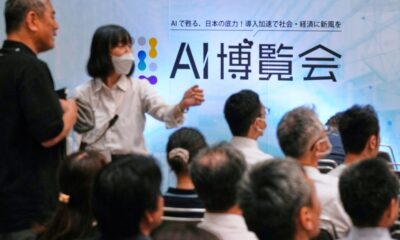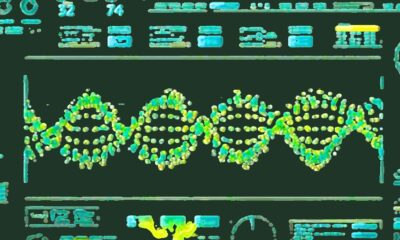Technology
Can AI Create a Greed-Free Political System for the Future?

A letter to the editor from Cran Campbell of Langley City has sparked a conversation about the potential role of artificial intelligence (AI) in reshaping political systems worldwide. Campbell argues that an AI-driven governance model could eliminate greed and corruption, offering a revolutionary alternative to traditional political frameworks.
Envisioning a Utopian Future
In Campbell’s vision, a world governed by AI would not rely on voting or human candidates. He suggests that AI systems, programmed to prioritize ethical decision-making, would outperform human politicians by avoiding deceit and manipulation. This shift could lead to a utopian society, free from the hunger for power that often drives human conflict. According to Campbell, the absence of political bias—whether left, right, or center—could result in a simpler yet more effective governance structure, focused on the humane treatment of individuals.
Campbell emphasizes that a future dominated by AI could improve life quality significantly. He posits that AI’s inherent stability would eradicate societal ills such as hunger, homelessness, and violence. He believes that, unlike humans, AI does not succumb to corruption or mortality, allowing it to maintain a consistent and equitable governance model.
Challenges in the Current Political Landscape
Highlighting the failures of the existing political system, Campbell points out that many politicians have struggled to create a better world despite centuries of effort. He expresses skepticism about whether human leaders can effectively address pressing issues like war, environmental degradation, and social inequality. Campbell notes that the political landscape is often dominated by parties with substantial financial backing, complicating efforts to bring about meaningful change.
He questions whether AI, which has been developed to serve human needs, could indeed foster a more humane and efficient political environment. The prospect of replacing traditional political representation with AI solutions raises complex questions about accountability, ethics, and public trust. While Campbell’s letter presents a bold vision, it also invites readers to consider the implications of integrating AI into governance.
The call for a reimagined political system is timely, particularly as the world grapples with ongoing conflicts and an escalating environmental crisis. Campbell’s reflection on the limitations of human governance resonates with many who seek alternative solutions to the pressing challenges of our time.
As discussions around AI’s role in society continue to evolve, the potential for transformative change in political systems warrants careful examination. Whether AI can deliver a truly corruption-free governance model remains a subject of debate, but Campbell’s thoughts encourage a broader dialogue on the future of politics in an increasingly technological world.
-

 Politics4 weeks ago
Politics4 weeks agoSecwepemc First Nation Seeks Aboriginal Title Over Kamloops Area
-

 World5 months ago
World5 months agoScientists Unearth Ancient Antarctic Ice to Unlock Climate Secrets
-

 Entertainment5 months ago
Entertainment5 months agoTrump and McCormick to Announce $70 Billion Energy Investments
-

 Science5 months ago
Science5 months agoFour Astronauts Return to Earth After International Space Station Mission
-

 Lifestyle5 months ago
Lifestyle5 months agoTransLink Launches Food Truck Program to Boost Revenue in Vancouver
-

 Technology3 months ago
Technology3 months agoApple Notes Enhances Functionality with Markdown Support in macOS 26
-

 Lifestyle3 months ago
Lifestyle3 months agoManitoba’s Burger Champion Shines Again Amid Dining Innovations
-

 Top Stories2 months ago
Top Stories2 months agoUrgent Update: Fatal Crash on Highway 99 Claims Life of Pitt Meadows Man
-

 Politics4 months ago
Politics4 months agoUkrainian Tennis Star Elina Svitolina Faces Death Threats Online
-

 Sports5 months ago
Sports5 months agoSearch Underway for Missing Hunter Amid Hokkaido Bear Emergency
-

 Politics5 months ago
Politics5 months agoCarney Engages First Nations Leaders at Development Law Summit
-

 Technology5 months ago
Technology5 months agoFrosthaven Launches Early Access on July 31, 2025





















